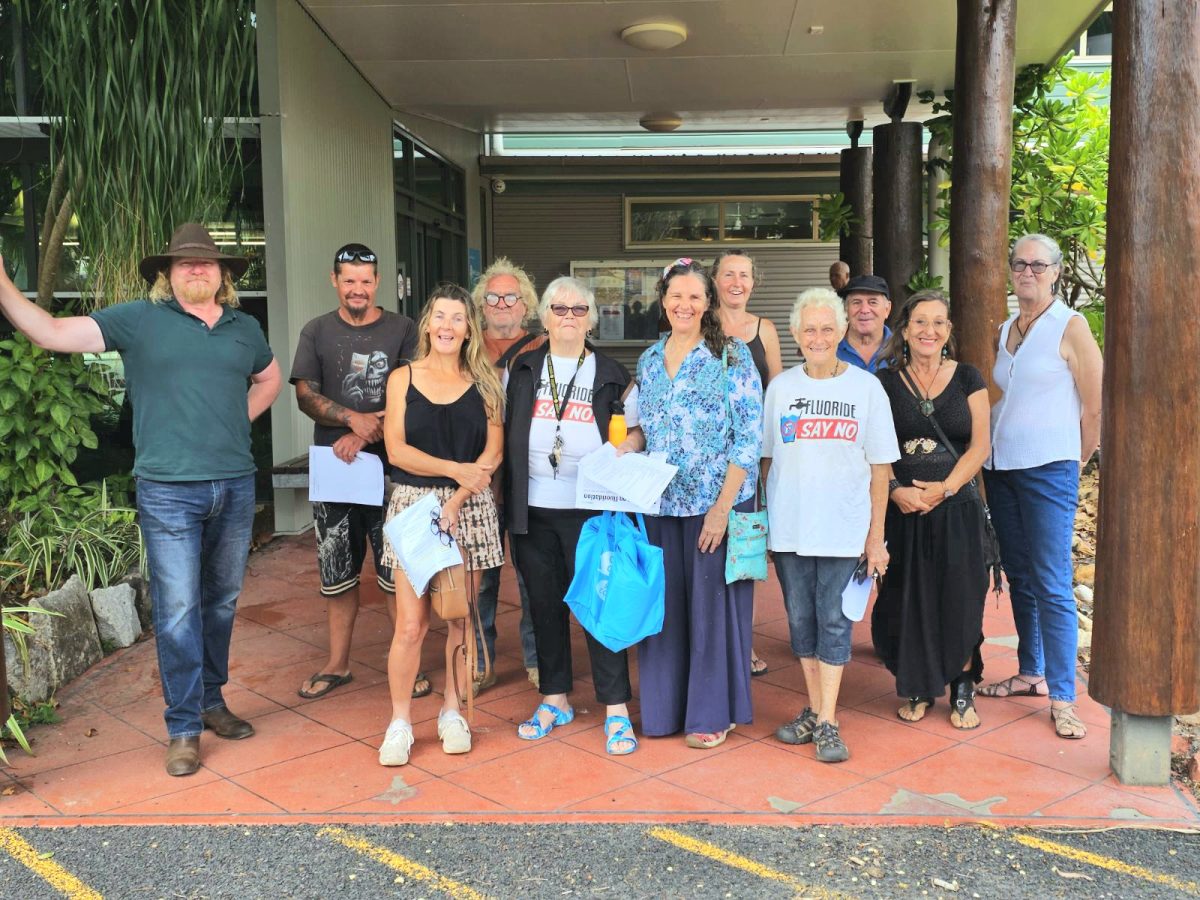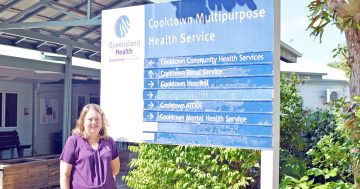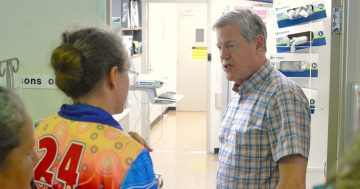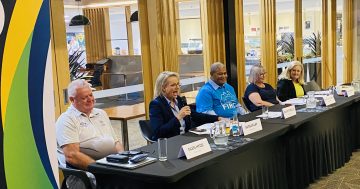
A large crowd opposed to the ongoing fluoridation of Cooktown’s water supply filled the public gallery at the Cook Shire Council meeting on 15 October.
A group opposed to the “dosing” of Cooktown’s water supply with fluoride has welcomed a decision by the council to reopen community debate about whether the practice should continue.
During Cook Shire Council’s ordinary meeting on 15 October, Councillor Melinda Parker moved a notice of motion calling for the organisation to reconsider whether fluoride should still be added to the water supply, given there is no longer any legislative mandate to do so.
From 2008, the Water Fluoridation Act 2008 (the Act) prescribed all councils in Queensland that provided potable water to at least 1,000 people had to add fluoride to the water supply, a mandate that was scrapped by former premier Campbell Newman in 2012 which allowed local governments to make their own decisions about fluoridation.
Fluoride continues to be added to Cooktown’s water supply, however, none is added to the supplies of Laura and Coen.
A full public gallery was on hand to witness Cr Parker’s notice of motion, with most seats filled by members of the group demanding fluoride stop being added to Cooktown’s water supply on the basis the mineral was not required to render it potable and, as such, represented a form of “mass medication”.
Cooktown resident Ian Murray is the spokesperson for the group and told Cape York Weekly while the council decision was welcome, concerns remained that consumers were not being given a choice about whether they wanted fluoride in their water.
“We welcome it, and we enthusiastically wait for the information as presented to be reviewed,” he said.
“The pros and cons, as people see them, are interpreted differently by individuals, and this is where individual choice, and what’s suitable for the individual, should be a personal choice.
“[Fluoride] is not required to render drinking water safe, and also, if that be the case, then it is given as a medication, and therefore would be required to be some form of consent by the individual.”
Section 7 of the Act allows for a council to add or not add fluoride to water supplies in its local government area if “it is satisfied the decision is in the best interests of the community”.
Mr Murray said he believed the council needed to take a whole-of-community approach to its consultation about fluoridation to ensure the correct decision was reached.
“We’ve kind of lost sight of the fact that we are all a community, and what affects one person does have a knock-on effect to the wider community,” he said.
“You know, even if, in my particular case, we’re on bore water and we’re out of town, I’m not detached from this community; we’re all in the same boat – if my friends, my colleagues, my associates and the wider community that I interact with are being dosed with what is effectively a harmful chemical, then, you know, we have an obligation and a duty of care to raise our voices in the interests of others.
“If people feel so inclined they think that fluoride is worthwhile having in their diet, there are plenty of other ways to get it in there.”
Mayor Robyn Holmes said the vote in the chamber last week would kickstart the debate about whether fluoridation would continue in Cooktown.
“There’s no direct decision on whether council will continue or discontinue fluoridation of the water,” she said.
“It’s pretty much just the decision to restart the conversation again in relation to what council sees fit, and what plan put in place moving forward.”
She added the council would ensure community consultation that considered both sides of the fluoridation debate would be undertaken to provide an open and transparent process.
“Council won’t come out and make that decision directly, because I think to make an informed decision, you have to have a balance of for and against arguments to consider community need,” Mayor Holmes said.
“Council recognises that everyone has a right to an opinion; we recognise that some people are strongly opposed to it, but then there’s others that see the health benefits of it.”
Original Article published by Lyndon Keane on Cape York Weekly.







